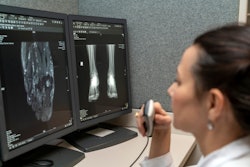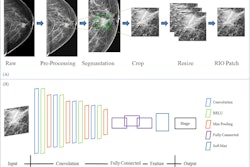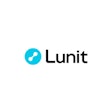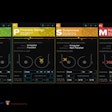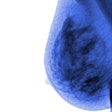Women with at least some knowledge about AI’s use in breast imaging are more willing to participate in studies using the technology, according to survey results published March 15 in the European Journal of Radiology.
Researchers led by Åsne Sørlien Holen from the Norwegian Institute of Public Health in Oslo found that over three out of five women and over half of women are willing to participate in studies using AI for decision support or triaging, respectively. However, the women also emphasized that they prefer having human readers involved too.
“Targeted information and increased public knowledge of AI could help achieve high participation in AI studies and successful implementation of AI in mammography screening,” Holen and co-authors wrote.
AI has emerged as an assessment tool in mammography screening for decision support, triaging, and as a standalone reader. Previous studies have shown that AI can accurately detect suspicious findings on mammography and reduce radiologist workload.
However, for AI to continue its emergence into the imaging space, large studies with willing participants are needed. Holen and colleagues explored attitudes and perspectives on AI assessment of screening mammograms among women invited to BreastScreen Norway, a program administered by the Cancer Registry of Norway. It includes women ages 50-69 for biennial two-view mammography screening.
The study included survey data from 8,355 women and used a 10-point Likert scale for responses.
Of the respondents, 50% reported having “moderate” knowledge of AI in general while 11% reported having “extensive” knowledge. This included an overall average score of 4.4. Additionally, 45.6% and 7.6% of the women indicated having moderate and extensive knowledge of AI’s use in healthcare settings, with an overall average Likert score of 4.
The researchers found that having extensive knowledge of AI was tied to willingness to participate in AI studies. As a decision support, the odds ratio (OR) was 5.1, while for triaging studies, the OR was 3.4. Also, having extensive knowledge was associated with higher trust in AI’s independent assessment, with an OR of 6.8.
Women with moderate knowledge also showed an overall willingness to participate in such studies, though with lower OR values than those of respondents with extensive knowledge.
“Being informed about use of AI-assisted image assessment was considered important, and a reading strategy of AI in combination with one radiologist preferred,” the team wrote.
Finally, the respondents reported that overall, their biggest concern with AI in mammography screening was the possibility that machines will take over and lead to a loss of human interaction (30.2%). The next biggest concern was the higher risk of breast cancer being overlooked (25.4 %).
The study authors highlighted that women participating in screening programs such as BreastScreen Norway “are important stakeholders” and that including their perspectives “will be crucial in future studies and implementation of AI.”
The full survey results can be found here.




